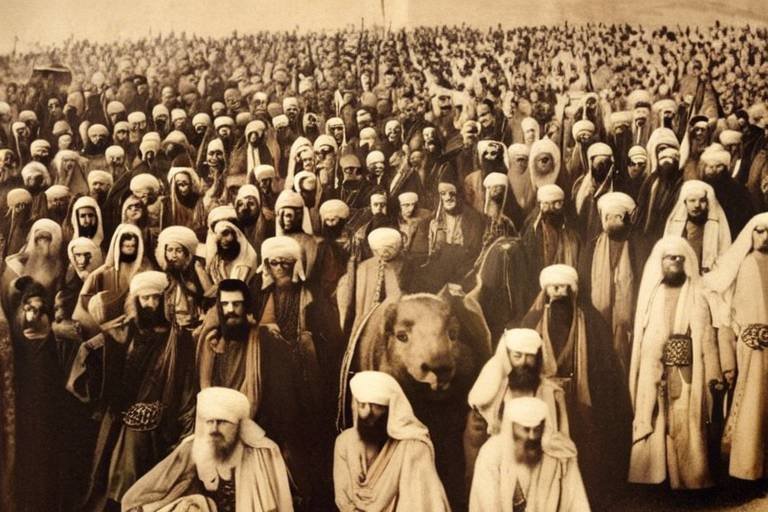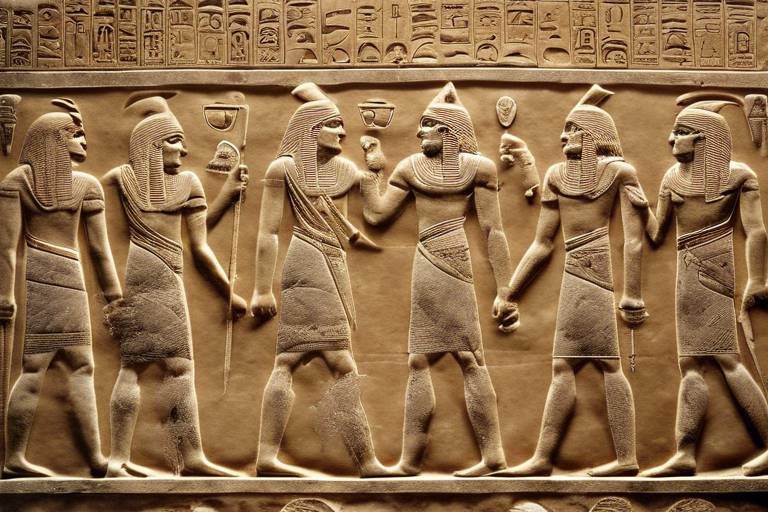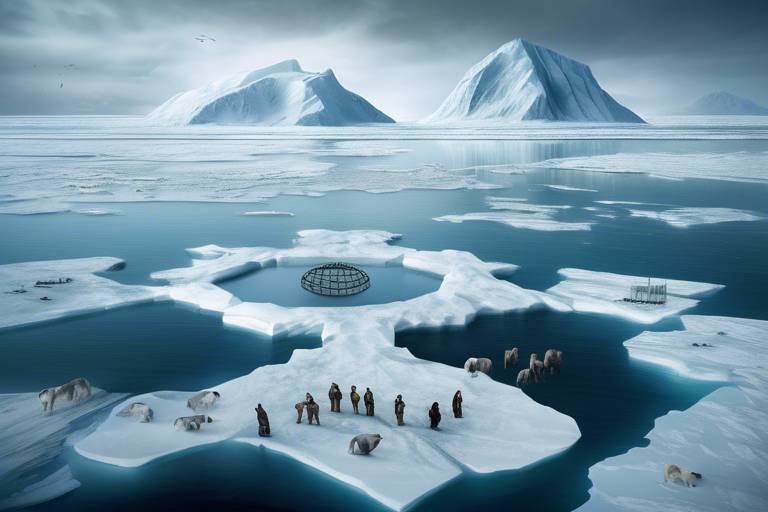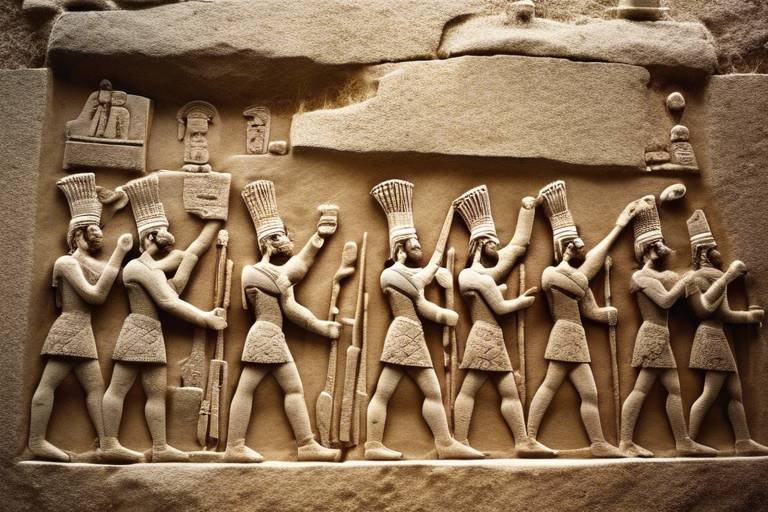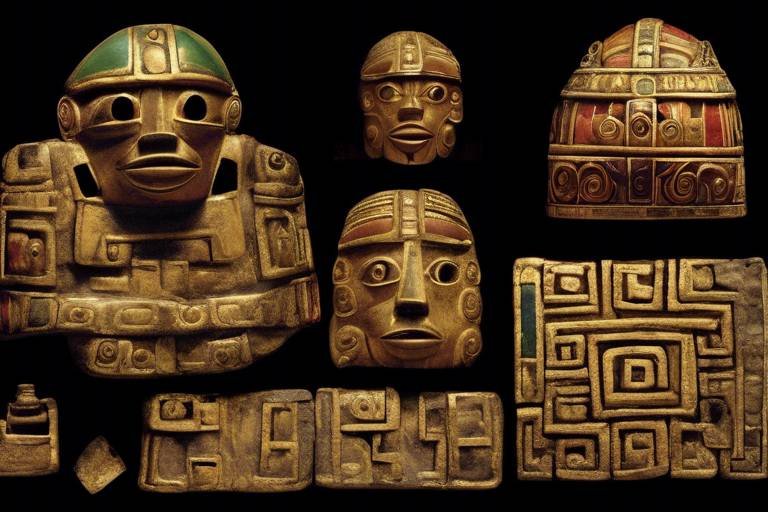The Decline of the Persian Empire - Lessons Learned
As we delve into the annals of history, the decline of the once-mighty Persian Empire stands as a poignant reminder of the fragility of power and the consequences of internal strife. The lessons learned from the fall of this ancient empire resonate through the corridors of time, offering insights into the pitfalls that modern societies and governments must navigate to ensure their longevity and prosperity.
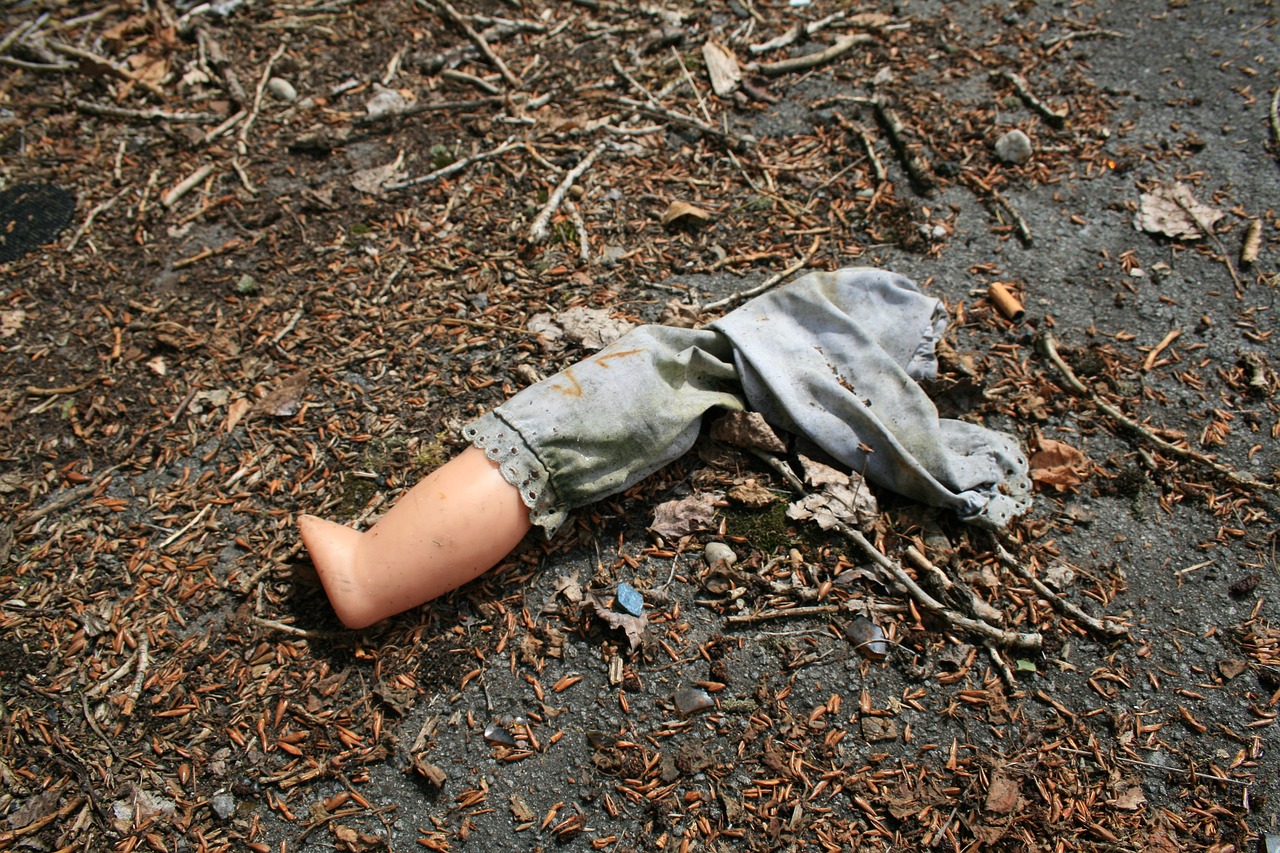
Internal Strife and Power Struggles
Internal strife and power struggles within the Persian Empire were like turbulent storms that shook the very foundation of its governance. The elite class, once united in their ambition to expand and rule, found themselves entangled in bitter rivalries and power games. As ambitions clashed and loyalties wavered, the empire's unity crumbled under the weight of internal conflicts.
Imagine a grand palace where every nobleman sought to sit on the coveted throne, each plotting and scheming to outmaneuver the other. This incessant struggle for dominance not only paralyzed decision-making but also sowed seeds of distrust and betrayal among the ruling class. The empire, once a beacon of power and sophistication, now stood divided and vulnerable.
Moreover, the lack of a strong central authority allowed regional governors and satraps to assert their own agendas, further fragmenting the empire's governance structure. Instead of working towards a common goal, these provincial leaders often focused on consolidating their personal power, disregarding the greater good of the empire.
Picture a map of the Persian Empire with cracks forming along its once unyielding borders, symbolizing the weakening grip of the central authority over its vast territories. The inability to quell internal dissent and power struggles left the empire exposed to external threats, inviting opportunistic neighbors to encroach upon its borders.
Ultimately, the internal strife and power struggles within the Persian Empire acted as a cancer that slowly ate away at its strength and resilience. While external enemies posed formidable challenges, it was the rot from within that proved to be the empire's undoing, highlighting the critical importance of unity and stability in the face of adversity.

External Invasions and Wars
During its peak, the Persian Empire faced relentless external threats from neighboring empires and foreign powers, leading to a series of wars and invasions that ultimately contributed to its downfall. The constant state of conflict put immense strain on the empire's resources and military strength, stretching its capabilities to the limit.
One of the most notable conflicts was the series of Greco-Persian Wars, where the Persian Empire clashed with the Greek city-states, including the famous battles of Marathon, Thermopylae, and Salamis. These wars highlighted the military prowess of both sides but also showcased the vulnerabilities of the Persian Empire in facing determined adversaries.
Furthermore, the invasion of the Persian Empire by Alexander the Great and his Macedonian army marked a significant turning point. Alexander's conquests and the subsequent division of the empire shattered Persian control over vast territories, leading to a rapid decline in its power and influence.
The external invasions and wars not only drained the empire's military and financial resources but also exposed its vulnerabilities and lack of preparedness to defend against determined foes. The inability to effectively repel these external threats further weakened the Persian Empire's grip on its vast territories and eroded its authority over time.

Economic Mismanagement
Economic mismanagement played a pivotal role in the downfall of the once-prosperous Persian Empire. The rulers' poor economic policies, characterized by heavy taxation and inefficient resource allocation, created a financial crisis that plagued the empire. The excessive burden of taxes on the populace led to widespread discontent and hampered economic growth, stifling innovation and productivity.
Furthermore, the mismanagement of resources, including the failure to invest in infrastructure and sustainable development, exacerbated the economic woes of the Persian Empire. The lack of foresight in utilizing resources efficiently led to long-term consequences, hindering the empire's ability to adapt to changing economic conditions and external pressures.
One of the significant challenges faced by the empire was the unequal distribution of wealth, with the elite benefiting disproportionately from economic policies at the expense of the common people. This widening wealth gap fueled social unrest and undermined the stability of the empire, contributing to its eventual collapse.
Moreover, the reliance on tribute and plunder from conquered territories as a primary source of revenue proved unsustainable in the long run. The failure to diversify the economy and develop sustainable revenue streams left the Persian Empire vulnerable to economic shocks and external disruptions, further weakening its financial foundation.
In hindsight, the economic mismanagement of the Persian Empire serves as a cautionary tale for modern societies and governments. It underscores the importance of prudent fiscal policies, equitable wealth distribution, and sustainable economic practices in ensuring long-term prosperity and stability. By learning from the mistakes of the past, contemporary leaders can strive to build resilient economies that prioritize the well-being of all citizens and promote sustainable growth for future generations.
- What were the main economic challenges faced by the Persian Empire?
- How did economic mismanagement contribute to the decline of the Persian Empire?
- What lessons can modern societies learn from the economic downfall of the Persian Empire?
The Persian Empire struggled with heavy taxation, inefficient resource allocation, unequal wealth distribution, and overreliance on tribute from conquered territories.
Poor economic policies led to financial instability, social unrest, and hindered the empire's ability to adapt to changing economic conditions, ultimately weakening its foundation and contributing to its collapse.
Modern societies can learn the importance of prudent fiscal policies, equitable wealth distribution, sustainable economic practices, and diversification of revenue sources to ensure long-term prosperity and stability.

Cultural and Social Changes
Exploring the factors and events that led to the decline of the once-mighty Persian Empire and the valuable lessons that can be gleaned from its downfall for modern societies and governments.
The decline of the Persian Empire was not merely a result of external invasions and economic mismanagement; it was also influenced by significant cultural and social changes within the empire itself. As the empire expanded and encountered diverse cultures, the traditional values and social structures began to shift, creating internal tensions and challenges.
One of the key cultural changes that impacted the Persian Empire was the erosion of traditional beliefs and practices. As new ideas and philosophies spread through the empire, there was a gradual weakening of the cultural cohesion that had once held the diverse regions together. This cultural fragmentation weakened the empire's sense of unity and common purpose, making it more vulnerable to external pressures and internal strife.
Moreover, social structures within the Persian Empire underwent transformations that further strained its stability. The hierarchical system that had governed society for centuries began to show cracks, as new power dynamics emerged and social hierarchies shifted. This social unrest and discontent among different societal groups weakened the empire's ability to maintain order and control over its vast territories.
Additionally, the Persian Empire faced challenges in adapting to the changing cultural landscape, as it struggled to reconcile traditional values with the evolving beliefs and practices of the conquered peoples. This cultural clash created tensions within the empire and contributed to a sense of alienation and disenchantment among its subjects.
Overall, the cultural and social changes within the Persian Empire played a significant role in its decline, highlighting the importance of cultural cohesion and social stability in maintaining the longevity of a vast empire. By understanding the impact of these changes, modern societies can learn valuable lessons about the importance of preserving cultural heritage, fostering social harmony, and embracing diversity for sustainable governance.
Reflecting on the lessons learned from the decline of the Persian Empire, we can draw parallels to contemporary governance challenges and the importance of adaptability, inclusivity, and sustainable practices for the longevity of societies.
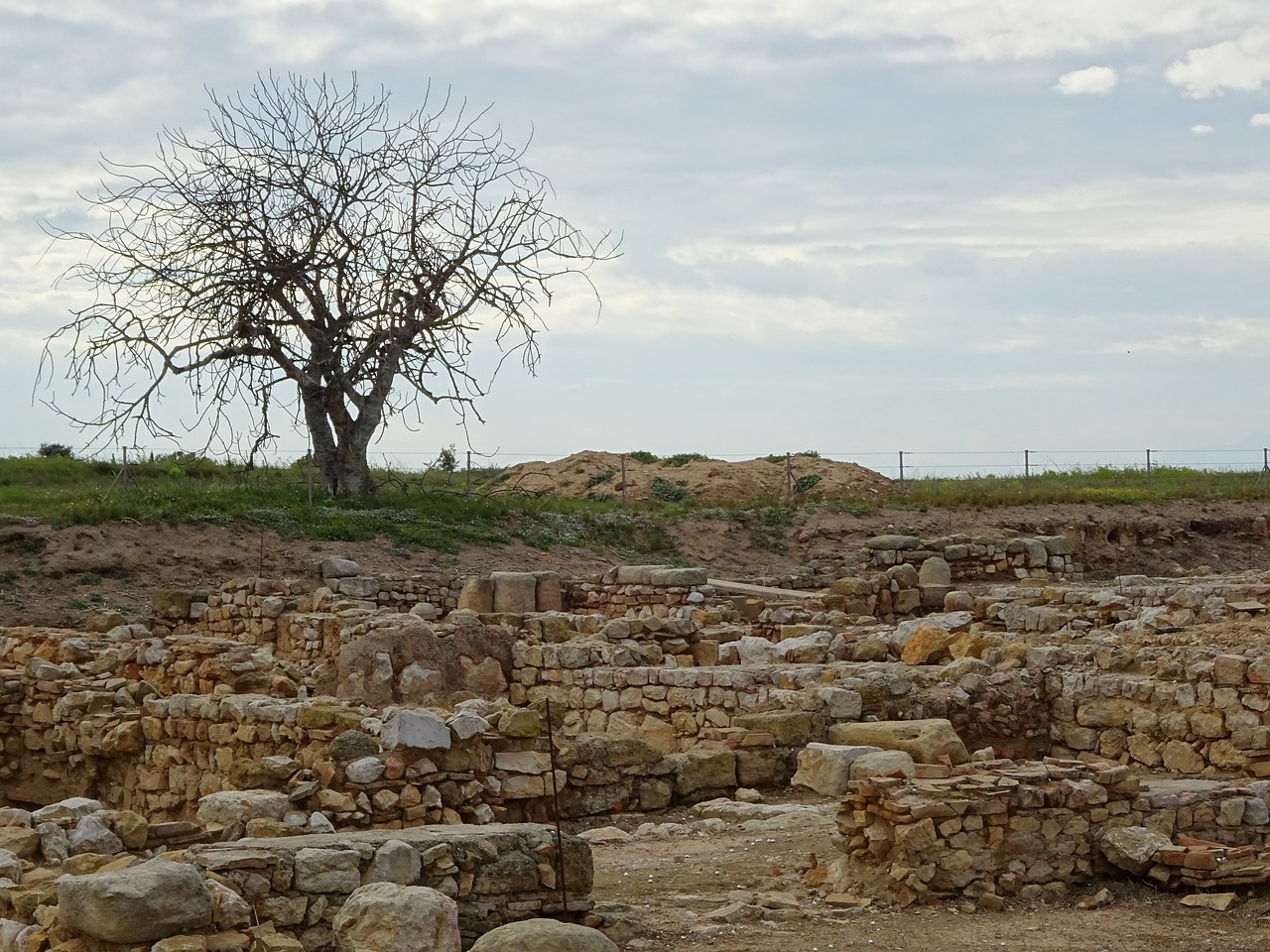
Environmental Degradation
Environmental degradation played a crucial role in the downfall of the once-majestic Persian Empire. The relentless exploitation of natural resources, particularly timber for construction and military purposes, led to widespread deforestation across the empire. The depletion of forests not only disrupted local ecosystems but also contributed to soil erosion and reduced agricultural productivity.
Moreover, the Persian Empire's extensive mining activities, aimed at extracting precious metals and minerals for trade and wealth accumulation, resulted in widespread environmental pollution. Toxic runoff from mines contaminated water sources, harming both wildlife and human populations. The unchecked industrial expansion further exacerbated environmental degradation, leading to long-term consequences that weakened the empire's sustainability.
The failure to implement effective environmental conservation measures and sustainable resource management practices ultimately proved detrimental to the Persian Empire's longevity. The environmental degradation, coupled with climate change and natural disasters, further strained the empire's already fragile ecological balance, hastening its decline.
As the once-thriving landscapes turned into barren wastelands, the Persian Empire faced increasing challenges in maintaining its agricultural productivity, supporting its growing population, and sustaining its economic activities. The environmental degradation served as a stark reminder of the interconnectedness between human societies and the natural world, highlighting the importance of responsible stewardship of the environment for the prosperity and resilience of civilizations.
Looking back at the environmental mistakes that contributed to the fall of the Persian Empire, we are reminded of the critical need for modern societies to prioritize environmental conservation, adopt sustainable practices, and address the pressing challenges of climate change and ecological degradation. By learning from the past and implementing proactive measures to protect our planet, we can strive to build a more resilient and sustainable future for generations to come.
Q: What were the main environmental factors that led to the decline of the Persian Empire?
A: The main environmental factors included deforestation, overexploitation of natural resources, pollution from mining activities, and the lack of sustainable resource management practices.
Q: How did environmental degradation impact the sustainability of the Persian Empire?
A: Environmental degradation led to soil erosion, reduced agricultural productivity, water contamination, and overall ecological imbalance, weakening the empire's ability to support its population and maintain economic stability.
Q: What lessons can be learned from the environmental mistakes of the Persian Empire?
A: The lessons include the importance of environmental conservation, sustainable resource management, and proactive measures to address climate change and ecological degradation to ensure the long-term resilience of societies.

Failure of Leadership
Exploring the factors and events that led to the decline of the once-mighty Persian Empire and the valuable lessons that can be gleaned from its downfall for modern societies and governments.
Leadership is often considered the cornerstone of any successful empire, yet in the case of the Persian Empire, it became a significant factor in its downfall. The failure of leadership within the empire was marked by rampant corruption, nepotism, and a lack of vision among those in power. Instead of guiding the empire towards prosperity and stability, leaders were more focused on personal gain and maintaining their positions of authority.
Corruption ran deep within the corridors of power, with officials putting their own interests above those of the empire. This not only eroded trust among the populace but also siphoned resources away from essential services and infrastructure development. As a result, the empire's ability to respond to challenges and adapt to changing circumstances was severely hampered.
Nepotism, the practice of favoring relatives and close associates in appointments and decision-making, further weakened the fabric of leadership within the Persian Empire. Positions of power were often filled based on familial ties rather than merit, leading to incompetence and inefficiency at the highest levels of government. This lack of qualified leadership contributed to a lack of strategic direction and cohesive decision-making, leaving the empire vulnerable to external threats and internal dissent.
Moreover, the absence of a clear vision for the future of the empire meant that leaders were reactive rather than proactive in their governance. Instead of implementing long-term policies that would ensure the empire's sustainability and growth, short-sighted decisions driven by personal interests prevailed. This shortsightedness left the Persian Empire ill-equipped to face the challenges of a changing world and ultimately sealed its fate.
Reflecting on the lessons learned from the decline of the Persian Empire, we can draw parallels to contemporary governance challenges and the importance of adaptability, inclusivity, and sustainable practices for the longevity of societies.
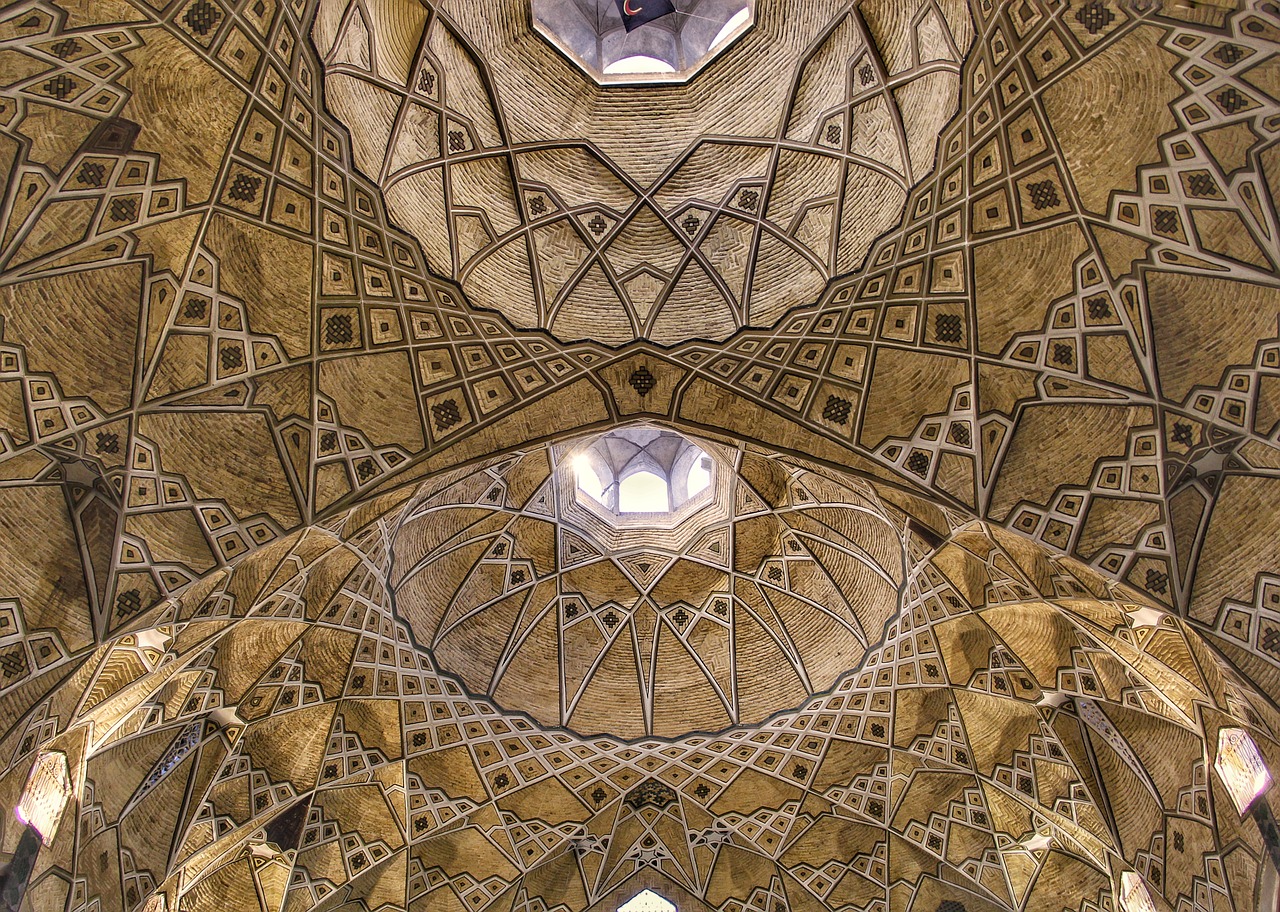
Military Weakness and Overextension
The decline of the once-mighty Persian Empire was significantly influenced by the military weakness and overextension that plagued its armed forces. Initially formidable, the empire's military gradually deteriorated over time, struggling to protect its vast territories effectively against both external threats and internal revolts. The overextension of the Persian military, attempting to defend and expand the empire simultaneously, stretched its resources thin and left key regions vulnerable to attacks.
This overextension not only depleted the empire's military strength but also strained its logistical capabilities, making it challenging to adequately supply troops stationed across far-reaching territories. As a result, the Persian Empire faced difficulties in coordinating and mobilizing its forces swiftly to respond to emerging threats, leaving gaps in its defenses that adversaries were quick to exploit.
Moreover, the weakening of the military allowed for internal dissent to fester, as disgruntled factions saw an opportunity to challenge the authority of the empire. The inability of the Persian military to quell these internal uprisings effectively further eroded the empire's control over its territories, leading to a downward spiral of instability and loss of power.
Furthermore, the military weaknesses of the Persian Empire were exacerbated by the lack of innovation and adaptation in its military strategies. While neighboring empires and adversaries evolved their tactics and weaponry, the Persian military remained stagnant, relying on outdated methods that proved ineffective in the face of more advanced opponents.
In essence, the military weakness and overextension of the Persian Empire serve as a cautionary tale, highlighting the importance of maintaining a balance between expansion and defense, investing in innovation and adaptability, and ensuring the sustainability of military resources for long-term stability and security.
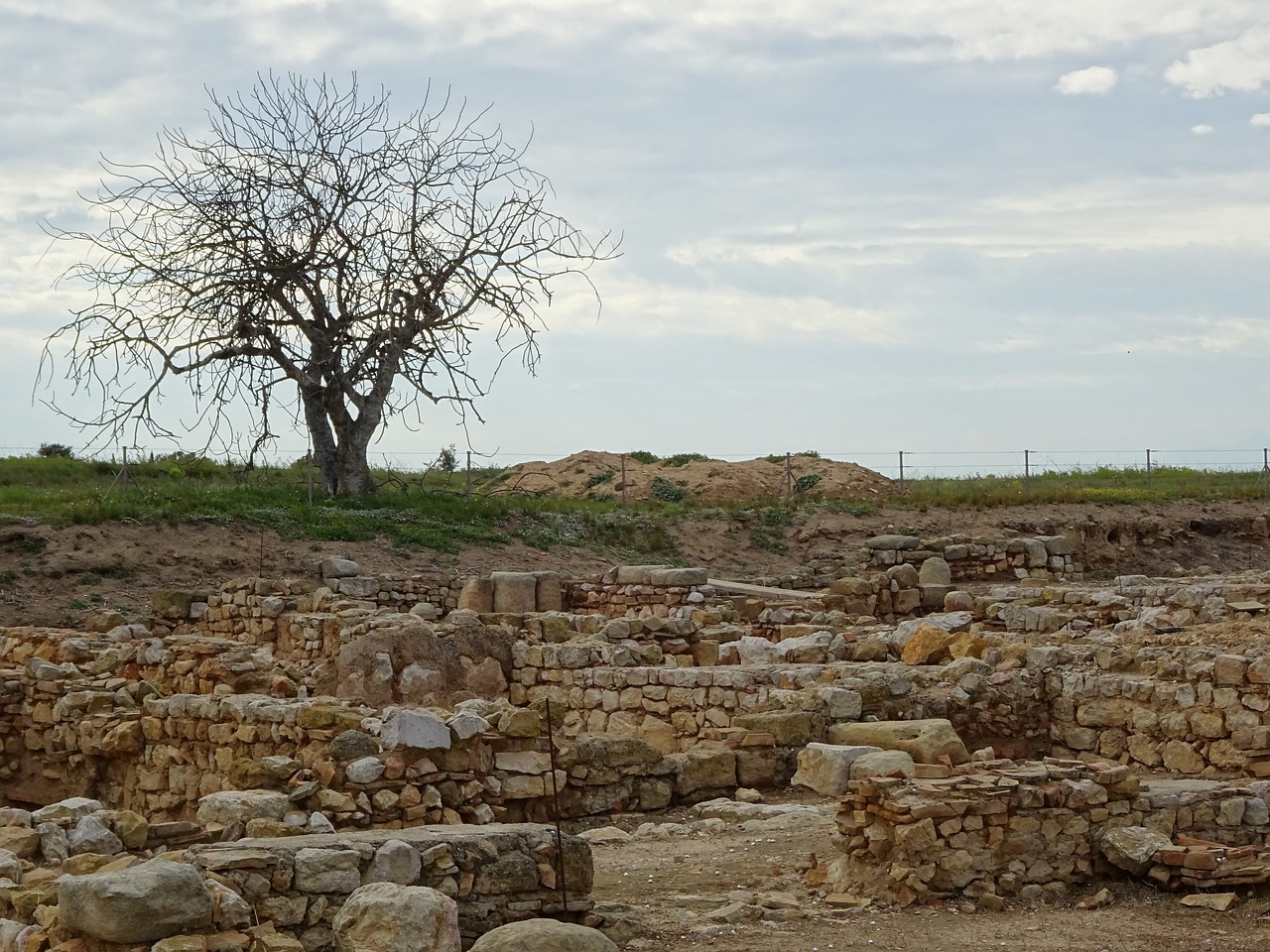
Rebellion and Dissent
Exploring the factors and events that led to the decline of the once-mighty Persian Empire and the valuable lessons that can be gleaned from its downfall for modern societies and governments.
Rebellion and dissent were like a smoldering fire within the core of the Persian Empire, gradually consuming its foundations. The discontent among the empire's subjects, fueled by oppressive policies and the lack of representation, simmered beneath the surface, waiting for the right moment to erupt like a volcano. The cries of the oppressed echoed through the corridors of power, shaking the very pillars of the empire.
As the grip of the ruling elite tightened, the voices of dissent grew louder, like a gathering storm on the horizon. The people, burdened by heavy taxation and deprived of basic rights, could no longer bear the weight of tyranny. The seeds of rebellion were sown in the hearts of the populace, ready to sprout into defiance against the oppressive regime.
The flames of revolt spread like wildfire, igniting regions once loyal to the empire. From the bustling streets of the cities to the remote corners of the empire, the spirit of resistance was kindled. The once-unquestioned authority of the Persian Empire now faced a formidable challenge from within its own borders.
Amidst the chaos of rebellion, the empire's leadership faltered, unable to quell the uprisings effectively. The cracks in the imperial facade widened as dissent turned into defiance, threatening to shatter the empire into fragments. The rulers, blinded by their own arrogance, failed to recognize the signs of impending collapse.
Ultimately, the rebellion and dissent that permeated the Persian Empire acted as a catalyst for its downfall, hastening the empire's descent into chaos and disarray. The lessons learned from this tumultuous period serve as a stark reminder of the consequences of ignoring the grievances of the people and the dangers of ruling through fear and oppression.
Reflecting on the lessons learned from the decline of the Persian Empire, we can draw parallels to contemporary governance challenges and the importance of adaptability, inclusivity, and sustainable practices for the longevity of societies.

Legacy and Contemporary Relevance
Reflecting on the lessons learned from the decline of the Persian Empire, we can draw parallels to contemporary governance challenges and the importance of adaptability, inclusivity, and sustainable practices for the longevity of societies.
Just as the Persian Empire faced internal strife and power struggles, modern governments must navigate political divisions and conflicts to maintain unity and effectiveness. By learning from history, leaders can work towards fostering cooperation and consensus among different factions for the greater good of society.
External invasions and wars that plagued the Persian Empire serve as a cautionary tale for nations today. The importance of diplomacy, defense strategies, and international relations cannot be understated in a world where conflicts can have far-reaching consequences. It is essential for governments to prioritize peace-building efforts and seek diplomatic solutions to avoid the pitfalls of warfare.
Economic mismanagement was a significant factor in the downfall of the Persian Empire, highlighting the need for sound financial policies and responsible resource management in modern economies. Sustainable development, equitable distribution of wealth, and prudent fiscal planning are crucial to ensure economic stability and prosperity for all members of society.
Cultural and social changes can have profound effects on the cohesion and resilience of a nation. As societies evolve, it is imperative to preserve core values while embracing diversity and inclusivity. By fostering a sense of belonging and respect for different cultural perspectives, governments can strengthen social bonds and promote harmony among their citizens.
Environmental degradation, a silent threat that contributed to the collapse of the Persian Empire, underscores the importance of environmental conservation and sustainable practices in today's world. Climate change, pollution, and resource depletion pose existential challenges that require global cooperation and decisive action to safeguard the planet for future generations.
The failure of leadership within the Persian Empire serves as a stark reminder of the consequences of corruption, nepotism, and a lack of vision in governance. Leaders today must uphold ethical standards, transparency, and accountability to earn the trust and support of their constituents. By demonstrating integrity and foresight, leaders can inspire confidence and lead their nations towards a brighter future.
Military weakness and overextension ultimately weakened the Persian Empire's defenses and paved the way for its enemies to exploit vulnerabilities. In the modern context, maintaining a strong and agile defense force is essential to safeguard national security and deter potential threats. Strategic planning, modernization of military capabilities, and a focus on training and readiness are key components of a robust defense posture.
Rebellion and dissent, fueled by grievances and lack of representation, shook the foundations of the Persian Empire. In today's world, governments must listen to the voices of their people, address legitimate concerns, and uphold principles of democracy and human rights. By fostering dialogue, participation, and respect for diverse viewpoints, nations can build resilience against internal discord and promote social cohesion.
In conclusion, the legacy of the Persian Empire offers valuable insights into the complexities of governance, the fragility of power, and the enduring lessons of history. By studying the past and applying its lessons to contemporary challenges, societies can strive towards a future built on resilience, inclusivity, and sustainable practices.
Frequently Asked Questions
- What were the main factors that contributed to the decline of the Persian Empire?
The decline of the Persian Empire was influenced by a combination of internal strife, external invasions, economic mismanagement, cultural changes, environmental degradation, leadership failures, military weaknesses, and rebellion among its subjects.
- How did internal conflicts and power struggles impact the Persian Empire?
Internal conflicts and power struggles among the Persian elite weakened the empire's unity and governance, making it more vulnerable to external threats and contributing to its eventual downfall.
- What role did economic mismanagement play in the decline of the Persian Empire?
Poor economic policies, such as heavy taxation and mismanagement of resources, led to financial instability and economic decline within the empire, further weakening its overall stability and ability to sustain itself.
- How did environmental degradation affect the sustainability of the Persian Empire?
Overexploitation of natural resources, deforestation, and environmental degradation had long-term consequences on the empire's sustainability, contributing to its collapse as it struggled to support its population and maintain its infrastructure.
- What lessons can be learned from the decline of the Persian Empire for modern societies and governments?
The decline of the Persian Empire highlights the importance of adaptability, inclusivity, sustainable practices, effective leadership, and the need to address internal and external challenges promptly to ensure the longevity and stability of societies and governments.

